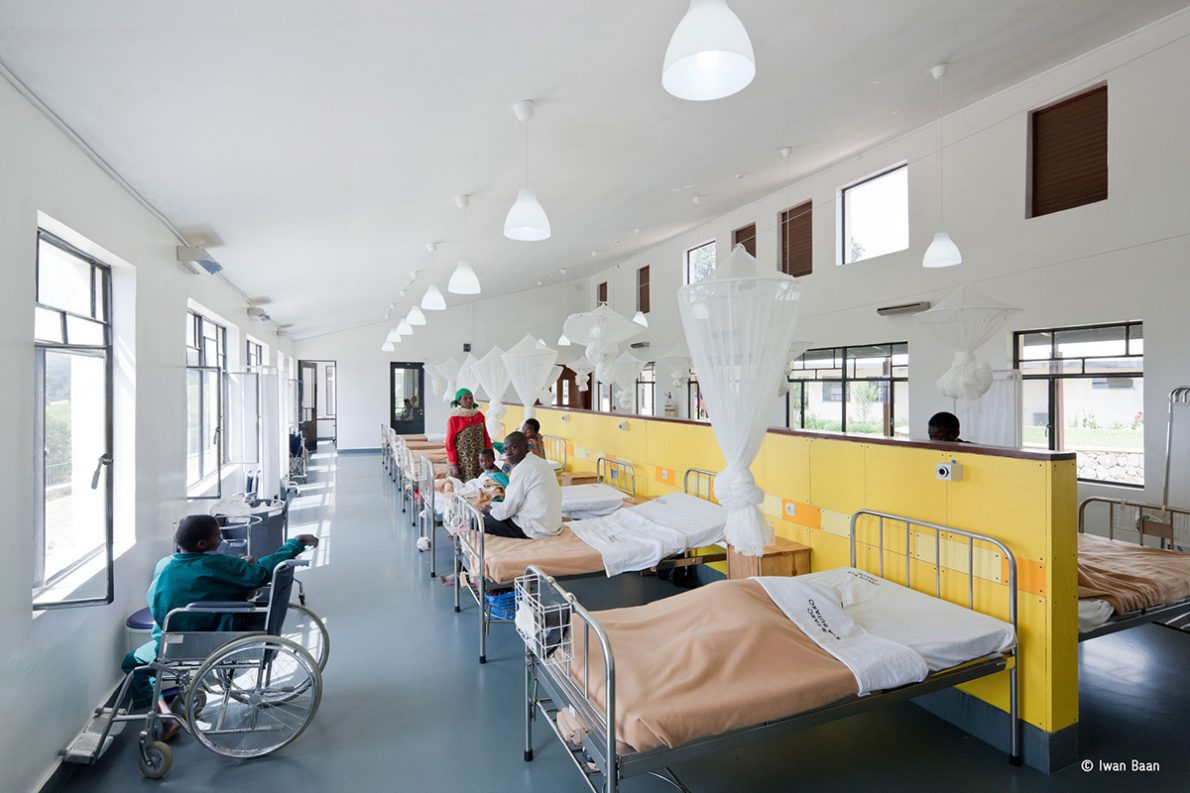[dropcap]T[/dropcap]he Federal Ministry of Health must take urgent measures to stop roving pastors and clerics from entering hospital wards to openly pray for patients of all faiths and none. The practice is against medical ethics and violates the rights of patients to freedom of religion or belief. In the past few months, I have had the opportunity of taking a family member to two state hospitals in Ibadan. These state hospitals are the University College Hospital (UCH) and the Oyo State hospital at Adeoyo. This family member was admitted for several days. And during the period, I interacted with doctors and nurses at the Out-Patient Departments and the wards. I saw how the hospitals operated especially how these medical centers were slowly turning into prayer centers.
At the University College Hospital, praying for patients formed part of the everyday processes at the wards. In fact, at the south-west wing, one short pastor who wore black trousers and a white t-shirt used to come to pray for patients.
This man would freely walk into the ward smiling. After greeting the nurses on duty, he would go on to preach the Christian gospel. He would pray for the health and recovery of patients in Jesus’ name. The pastor’s intercessions featured denunciation of disease-causing demons, principalities, and powers. As the pastor offered payers, some of the patients and their relatives could be heard saying ‘Aaaami, Aaaaami’, (that is a localized form of Amen) Ni Oruko Jeeesu (In Jesus Name) as he repeatedly and emphatically called on the Jesus God to heal the sick persons in the ward. Meanwhile, not every patient in the Southwest wing was a Christian. Apparently, the Christian prayer ritual did not go down well with other patients and relatives. Some patients and relatives, who might be Muslims, nonbelievers or disinterested parties, were silent and indifferent. They put up straight faces waiting for the pastor to finish and leave the ward. The prayer usually lasted for 20 minutes.
At the State hospital at Adeoyo, praying for patients inside the hospital wards happened unrestrained. There were individual and group prayer warriors. At the Medical Outpatient Department, hospital officials prayed for patients while they were waiting to see the doctors. In fact, I overheard a nurse at the male ward recounting how she tried to compel a patient to accept Jesus and the patient refused. And she concluded that the young man was a member of a cult. This nurse wore a badge that advertised a Christian revival program. Individual and group prayer warriors used to go from ward to ward to pray for patients. In the mornings, a woman used to walk into the ward to pray for patients. This woman used to conduct her prayers in a characteristic manner. As soon as she stepped into the ward, she would start praying, shaking her head, wringing her fist, and stamping her feet on the ground. And nobody would stop or interrupt her until she finished.
On Sundays, a group of five to seven members of a Christian organization used to come to pray for patients in the wards. Members of the Ahmadiyya sect also come to offer prayers during the month of Ramadan. These Christian and Muslim groups donated some toiletries, and beverages including some religious leaflets to the patients. The practice of praying for patients at the wards is not peculiar to the UCH and the state hospital at Adeoyo. This evangelical program is pervasive in hospitals nationwide.
It is pertinent to state that nobody is against praying for believing patients who may so desire. Individuals have the right to pray or to ask to be prayed for. Saying prayers for oneself or others is an exercise in freedom of worship. And freedom of worship is guaranteed in the constitution. In addition, nobody should think that this is a move to ban people from praying in hospitals. Many people in Nigeria believe that they could be healed through prayers. At the hospitals, I overheard many patients murmuring some prayers before and after taking their medications. Some were repeatedly beckoning on God to come and heal them!
But it is also important to note that state hospitals are not prayer centers and public prayers for the sick are not part of the medical procedures at these places. State hospital spaces should be religiously neutral. Praying for patients should be private and personal affairs. State hospital wards should be managed in ways that do not discriminate against persons on religious grounds. To this end, hospital authorities should disallow public prayers for patients of all faith or none.
Perambulating prayer warriors should not be into the wards or hospital premises. They have no business there. Hospitals are not churches and mosques. Are they? Doctors, nurses and other health attendants should not pray for patients; they should not preach religion to patients or try to convert them. Hospital staff members are employed to provide medical care, not prayers. They are at the hospitals to perform their medical duties, not to evangelize.
The management at the University College Hospital, Adeoyo State Hospital, and the Federal Ministry of Health should rise up to their obligations to Nigerians of all faiths and none. They should ensure that sick persons can receive the medical care that they need at public hospitals without being compelled to pray or to be prayed to; without being forced to embrace one religion or the other.
Leo Igwe is a human rights activist and the founder of the Nigerian Humanist Movement. He was the Western and Southern African representative to IHEU, the International Humanist and Ethical Union. He can be reached by email HERE.
The opinions expressed in this article are solely those of the author.







